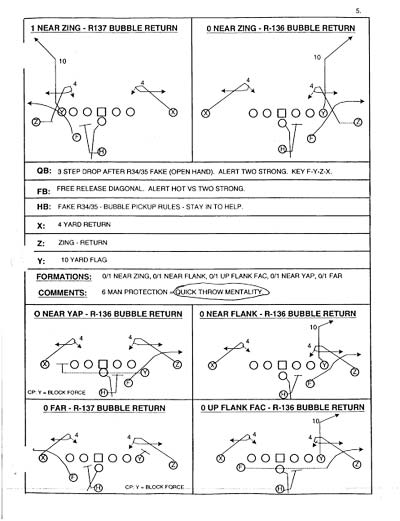We’ve all heard stories about athletes who are illiterate yet allowed to sail through high school based on their “non academic” skills. These tales fit nicely with the stereotype of the dumb jock and the nerdy brainiac who has no talent for sports whatsoever. But in reality, these abilities are not mutually exclusive, and now new research even suggests that top athletes may have mental advantages over the rest of us.
A study at the Karolinska Institute in Stockholm, Sweden, found that highly skilled athletes rely on mental acuity as well as their physical prowess to play their sport as well as they do.1 In fact, the more talented the player, the higher their brain function in certain areas. Just looking at the plays in a professional football playbook will give you an idea of the amount of memory, instant recall, and ability to re-conceptualize and mentally shift to multiple variations in fractions of a second are required to play the game.

The research revolved around psychological testing given to 57 adult professional soccer players, both men and women. Approximately half of these volunteers came from Sweden’s most elite soccer league and the remainder were members of lower-ranked teams. The assessments were designed primarily to evaluate each individual’s executive function skills, which are brain processes that have to do with working memory, focus, creativity, and self control.
Compared to the population at large, all of the athletes involved in the study scored higher on these tests of executive function. And within the group participating, the more talented soccer players performed measurably better than the rest of the players. Interestingly, the elite players actually got scores that were better than 95 percent of the general public in this brain skill.
It does make sense when you consider the game of soccer. The team members are all required to think on their feet (pun intended) and “read” the field to determine what the opposition will do next. It would seem that American football and world football are surprisingly similar — at least in this regard. It would be intriguing to find out whether making it to a top level in any sport necessitates talent in executive functions of the brain or if that only holds true for certain activities. The scientists involved in the study hypothesized that while high-performing executive function skills are clearly needed for becoming an elite athlete, practicing and training regularly at a competitive level might work to increase a person’s executive functions as well.
At any rate, this is just one more potential benefit that getting active can have, especially for children. Getting your kids involved in team sports teaches them how to work with others and to enjoy being athletic. And it gets them off the couch, away from video games and television, at least for a while, which in and of itself will benefit their executive function.
On another note, a 2011 study at the University of Virginia in Charlottesville found that even watching just a few minutes of a typical, fast-paced children’s cartoon can negatively affect the viewer’s mental acuity.2 After watching only nine minutes of television, the children involved in the study were tested on executive function. The kids who had watched SpongeBob scored substantially lower than the children who had instead viewed a more educational program or colored with markers and crayons. And let’s reiterate that was after only nine minutes of typical child-oriented programming.
So if television harms our children’s executive functions and sports can improve them, it seems like a no-brainer. Not to mention all of the other advantages being athletic can give them, such as improving coordination, keeping their cardiovascular systems fit, and helping to control their weight. It also provides a foundation for a healthy lifestyle that will stay with them throughout the rest of their lives. And, in addition to being a good parent and signing them up for a sport or two, you can benefit both yourself and your kids by being a great role model. Get out there and get active yourself. Team sports can be tremendous fun if you join a recreational adults league, and there are leagues around for volleyball, softball, soccer, hockey…the list goes on and on. Commit to a team and you will have a great time while doing your brain and your body some good.
PS: But don’t forget to make sure your children play in such a way as to avoid repetitive blows to the head such as heading the ball in soccer, or almost anything in American football, or hockey for that matter. When all is said and done, maybe Quidditch is the way to go.
1 Goodman, Brenda. “Dumb Jocks? Not if They’re Good at the Game.” WebMD. 5 April 2012. Accessed 19 April 2012. <http://www.webmd.com/brain/news/20120405/dumb-jocks-not-if-theyre-good-at-game>.
2 Lillard, Angeline S. and Peterson, Jennifer. “The Immediate Impact of Different Types of Television on Young Children’s Executive Function.” Pediatrics. 12 September 2011. American Academy of Pediatrics. 18 October 2011. <http://pediatrics.aappublications.org/content/early/2011/09/08/peds.2010-1919>.











